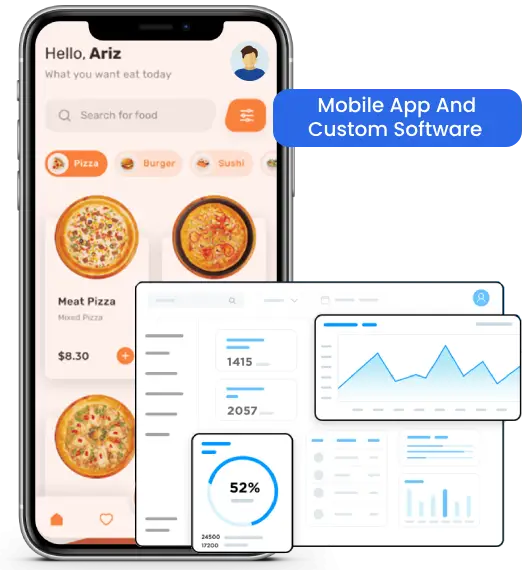When it comes to choosing software for your business, the decision between off-the-shelf and bespoke software can be a difficult one. Both options have their own benefits and drawbacks, and it can be challenging to decide which is the best fit for your business. But what if one can use hybrid software?
Off-the-shelf software is pre-packaged and readily available to purchase and use. It’s a quick and easy solution that can be implemented in a short amount of time. However, it may not necessarily meet all of your business requirements, and it can be difficult to make modifications to the software.
On the other hand, bespoke software is custom-built to your business requirements. It’s a unique solution that is tailored to your specific needs, and it can be modified and updated as your business changes and grows. However, it can be more expensive and time-consuming to develop.
But is there a best of both worlds solution? Let’s take a look at some examples where hybrid software by combining both off-the-shelf and bespoke software could be the optimal solution:
- Integrating with Third-Party Software
If you have a bespoke software for your business without accounting functionality, integrating with third-party accounting software like QuickBooks or Xero can be a more efficient solution, rather than developing a bespoke accounting system from scratch - Developing customer interface while using off-the-shelf CRM/ERP
Off-the-shelf CRM and ERP systems can be cost-effective and provide a solid foundation for managing customer relationships and business processes. However, developing a customized customer interface that aligns with your business branding and processes can be a better option. This will provide a seamless experience for your customers while still utilizing the existing functionality of the off-the-shelf software. - Developing middleware
If your business uses multiple off-the-shelf systems, developing middleware can be a way to integrate the different systems and streamline processes. This will ensure data is consistently transferred between systems and reduce the likelihood of errors or delays.
By hybrid software, businesses can take advantage of the benefits of both. This can result in a cost-effective, efficient, and tailored solution that meets the unique needs of the business.
In conclusion, the decision between off-the-shelf and bespoke software doesn’t have to be an either/or choice. By evaluating your business needs and strategically combining different solutions, you can create a software ecosystem that is optimized for your business.



